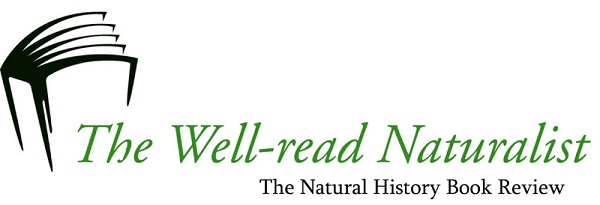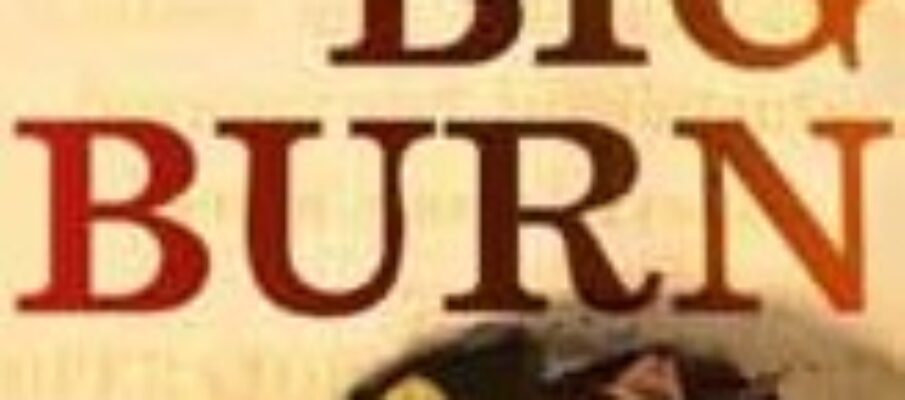As long as humankind has walked the Earth, fire has been both its liberator and its nightmare. The same elemental force that enabled our earliest ancestors to put behind them their daylight-limited existence and begin to shape their world in ways beyond their own physical capabilities is also the central theme of our most profound and over-arching fears – so much so that for much of humanity the worst punishment imaginable after death is eternal confinement to everlasting flames. To be trapped in a dark stinking pit, your flesh burned, your lungs torn by both scalding air as well as thick, acrid smoke, pressed suffocatingly tight against countless others, all of you sharing the same hopeless fate is the image of a possible afterlife that keeps us living upright and honest lives in order to avoid. To endure such tortures while still alive is unthinkable – yet as Timothy Egan so eloquently chronicles in The Big Burn: Teddy Roosevelt and the Fire That Saved America, Assistant Ranger Ed Pulaski and his team of under-paid and under-equipped men did precisely that one terrible day in August of 1910 while fighting the largest wildfire the United States has ever known.
Bringing together the historically interwoven stories of the origin of the U.S. Forest Service, the irrepressible Theodore Roosevelt, his visionary chief advisor Gifford Pinchot, an embarrassingly malleable William Howard Taft, rapacious Guided Age robber barons, their bought-and-paid-for congressmen, and a host of “ordinary” men and women whose names would otherwise be lost to history, Egan presents the reader with a glorious tapestry depicting the worst as well as the best of human nature set against the background of a 2,000 degree wall of flames that in a mere thirty-six hours destroyed an area in Western Montana and the Idaho panhandle equal to the size of Connecticut. That the death toll was in the end measured only by three digits rather than four or five is not solely attributable to the sparse population of the Western United States at the turn of the Twentieth Century, it is in large part thanks to the monumental heroism of a few extraordinary men who despite being previously ridiculed, reviled, and even threatened with death by the very people they risked, and sometimes gave, their lives in order to save.
When considered in regard to its importance to the history of the nation, the Big Burn that destroyed over three million acres of forest, much of it part of the newly established national forest system, served as the crucible for an institution and an agency that began as the outlandish dream of Roosevelt, Pinchot, and John Muir, and which now stands as a predecessor to and model for forest reserves around the world. The destruction and loss of life the fire wrought allowed the American public, for whom the national forests had been established in the first place, to come to know not only what they stood to lose, they also came to know the level of dedication of those entrusted with keeping these forests safe in the public’s name.
While the spirits of some of the same private interests who initially sought to cripple and destroy the fledgling forest service just prior to the fire, likely worsening the damage it caused, and now seek to corrupt and control the forest service through political cronyism and legislative manipulation still remain, the recounting of the Big Burn, telling a new generation of its heroes and villains, its “great men” and its “common men,” and the dream that our nation’s vast forests would survive for generations upon generations yet to come, will perhaps help prevent the sins of both commission and omission from being repeated. Such lessons should only ever need to be learned once by any society.
Title: The Big Burn: Teddy Roosevelt and the Fire That Saved America
Author: Timothy Egan
ISBN-13: 9780618968411
ISBN-10: 0618968415
Hardcover; 336 pages
Publication Date: 10/19/2009
In accordance with Federal Trade Commission 16 CFR Part 255, it is disclosed that the copy of the book read in order to produce this review was provided gratis to the reviewer by the publisher.



Born Again Bird Watcher » Blog Archive » The Well-read Naturalist: The Big Burn
October 26, 2009 @ 13:28
[…] My review of Timothy Egan’s latest book, The Big Burn: Teddy Roosevelt and the Fire That Saved America, is now available at The Well-read Naturalist. […]